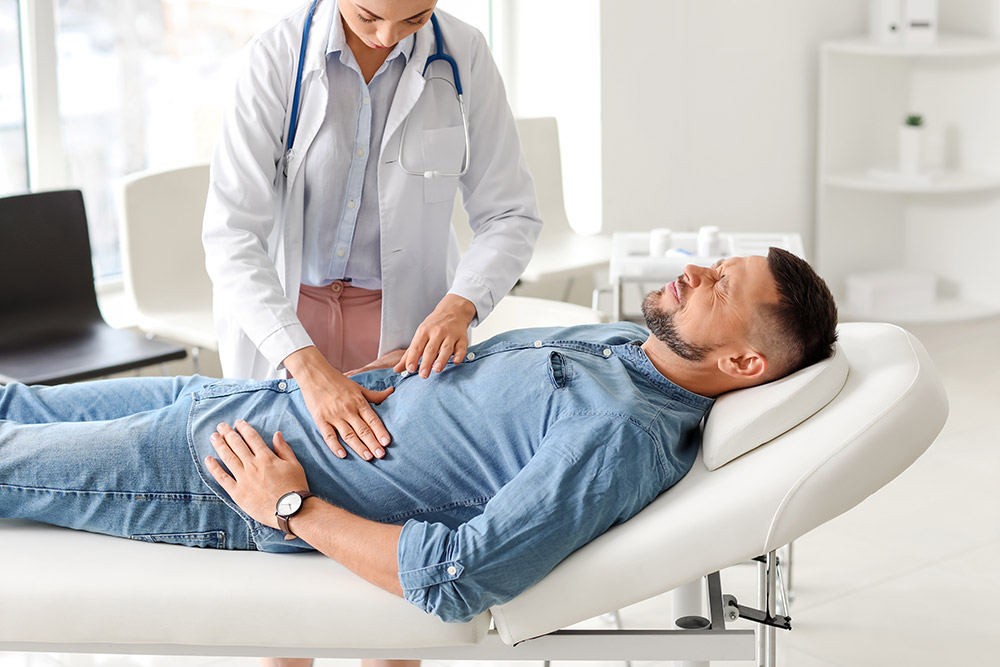
The Inflammatory Bowel Disease (IBD) is a disease that afflicts millions of individuals. We hope that at Gastrodoxs we can assist you in detecting the signs at an early stage. The earlier these signs are spotted, the sooner care would be provided and quality of life would be improved.
In this manual we will discuss 5 typical symptoms of IBD. You will also be informed of the distinction between ulcerative colitis and Crohn disease, as well as the gastroenterologists of Houston are the most renowned in their field.
IBD is a chronic disorder that brings out inflammation of the digestive tract. The two main types are:
IBD occurs when the immune system is used to attack the digestive lining. Unattended, it can cause such problems as scarring or deficiency of vitamins.
Finding IBD signs early can:
Dr. Bharat Pothuri, a prominent GI in Houston says that patients can prevent flare-ups when they develop their symptoms at an early age and remain active.
What to Watch For
Why It Happens
Muscles spasm as a result of swelling of the gut. This causes cramping or acute pain.
What Can Help
IBD may lead to the urgent need or difficulty when passing the stool.
Key Details
IBD usually presents with changes in bathroom habits, which is what Dr. Pothuri says. Provided they do not go away, visit a doctor.
IBD may prevent your gut to absorb nutrients, thus causing weight loss.
What You Might Notice
Nutrition Tips
Even after a good sleep chronic gut inflammation may leave you feeling drained.
What Causes Fatigue
Simple Ways to Boost Energy
In your stools, bleeding in the gut may present itself. This could refer to lining ulcers or tears.
Signs to Look For
Early bleeding has an early cause that can be detected through a colonoscopy as explicated by Dr. Pothuri. This is useful in preventing anemia in its early stages.
| Characteristic | Ulcerative Colitis | Crohn's Disease |
| Affected Area | Colon and rectum only | Any GIT area |
| Pattern of Inflammation | Continuous | Patchy, skip areas |
| Inflammation Depth | Surface lining only | Bowel wall, all layers |
| Common Symptoms | Bloody diarrhea, urgency | Abdominal pain, weight loss |
| Normal Onset | 15-30 years | 10-30 years |
And when you have experienced any of these symptoms more than two weeks, it is time to do something:
The problem can be diagnosed by means of early tests, such as blood work, stool tests, or even a colonoscopy. The Gastrodoxs team will assist you in all aspects.
Dr. Pothuri says early care transforms lives. When patients respond to symptoms at an early stage, a lot of medications are unnecessary, and the patients feel better. It is best to listen to what your body is saying.
No cure, but you can make yourself feel better:
The early symptoms of IBD can make you be in control. Don't wait if you have had belly pain and changes in your bowels and weight loss. Go to Gastrodoxs or make a reservation with Dr. Bharat Pothuri in Houston. Our mission is to make you feel your best in one step at a time.
It is a set of diseases 1. primarily ulcerative colitis and Crohn disease 1. which lead to chronic inflammation of the gut.
No cure exists but a myriad of therapies can be used to control symptoms and avoid exacerbations.
No. IBS is a non-inflammatory disorder having cramps and bowel abnormalities. IBD results in gut swelling and damage.
See a GI doctor immediately with the following symptoms that last more than two weeks: stomach pain, diarrhea, or blood in stool.
Low-fiber diets can assist in the case of flare-ups. Consult a dietician to get a personal plan.
Yes. Stress can trigger flares. Guided meditation and breathing exercises can be helpful.
Those that are common are blood tests, stool tests, colonoscopy, and scans such as MRI enterography.
Take what your doctor suggested, eat, avoid known triggers and monitor your symptoms.
Yes. Although it is more prevalent in adults, children and adolescents may have it as well.
Yes. Support meetings are held in Gastrodoxs and other clinics. There are also local options which can be found on CDC site.